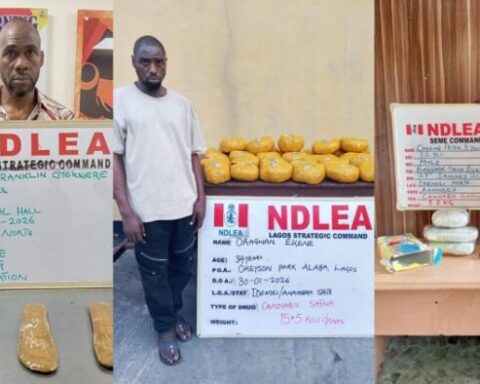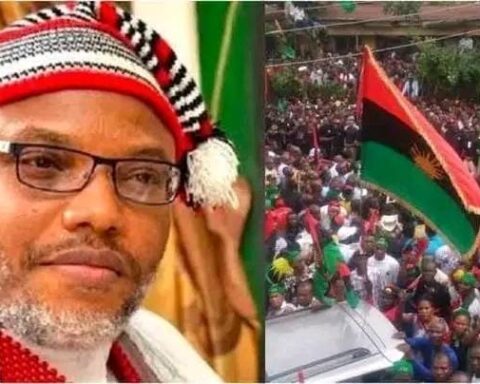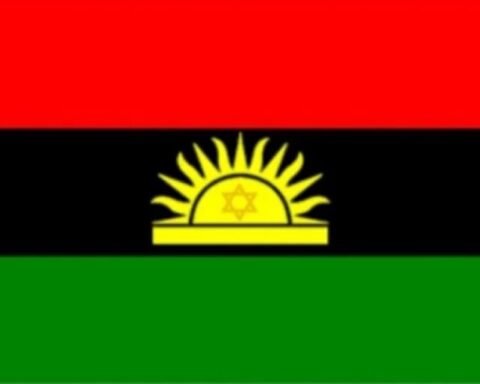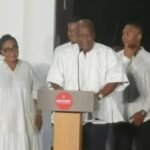By Mike Abbah
The suspension of investigative hearings by the Senate ad-hoc Committee, set up to probe allegations of economic sabotage in Nigeria’s petroleum industry, has triggered fears that the upper legislative chamber may have embarked on another journey in frivolity.
The Senate Leader and Chairman of the ad-hoc Committee, Opeyemi Bamidele, who disclosed this in a statement on Sunday, was not forthcoming about the reason for the sudden postponement but merely claimed that “the decision for the postponement was taken in the best interest of the federation and its teeming population.”
He added that the postponement became imperative considering the compelling need “to consult more widely with expanded stakeholders within and without the petroleum industry and legislative exigencies to further deepen due diligence in the conduct of the investigative hearing.”
Reactions
However, stakeholders and industry experts have expressed concern that the indefinite suspension of the ad-hoc Committee’s assignment, after one month it was constituted, might lead to another phase of endless probe for which the Senate is known.
The House of Representatives also constituted its own ad-hoc Committee to join the Senate’s for the exercise.
“I am afraid the Senate may have returned to its tradition of endless probe. Over the years, the upper legislative chamber had embarked on countless probes without producing any result,” said Engr. Mitchel Kadir, an oil and gas expert.
Emerging Trend
Ten months after the Senate embarked on a probe of the endless maintenance of Nigeria’s moribund refineries without a report, the upper and lower legislative chambers jointly commenced a similar exercise in August, 2024.
This followed fresh controversies trailing the nation’s oil and gas industry, especially in the aspects of sabotage, corruption and oil theft.
On its part, the Speaker of the House of Representatives, Abbas Tajudeen, named a seven-member committee to probe alleged economic sabotage in the oil and gas sector.
Surprisingly, this came on the heels of the action by the same Speaker who abruptly relieved the joint committee on Petroleum Resources Downstream and Midstream of the responsibility of a forensic probe into the sector amid allegations of massive fraudulent activities.
The recent panel headed by House Leader, Julius Ihonvbere, was to join the Senate in executing its task. The House said the new structure aimed to ensure synergy between the two chambers of the National Assembly towards a holistic approach in addressing the issues involved.
On its part, the Senate had expressed concern over the $1.5 billion approved in 2021 for the turn-around maintenance of the Port Harcourt Refinery with little or no result.
Senator Bamidele, said it was unfair and wrong to treat public companies shabbily while private businesses were flourishing and thriving.
He recalled that the Federal Executive Council had approved the plan by the Ministry of Petroleum Resources to rehabilitate and turn around the Port Harcourt Refinery with $1.5 billion
Senator Bamidele, who expressed concern about the dysfunctional state of government-owned refineries despite billions of dollars spent on turn-around maintenance,
observed that the federal government, under different administrations since 1999, “has invested billions of dollars to maintain and turn around the state-owned refineries in Kaduna, Port Harcourt and Warri. But the refineries are not functioning..”
“In 2021, specifically, the Federal Executive Council approved $1.5 billion for the turn-around maintenance of the Port Harcourt Refinery. Yet, this investment has not yielded significant returns.
“For us in the Senate, we believe it is unfair and unpatriotic to treat government or public corporations as an orphan while private businesses flourish and thrive.”
Pending Senate Report
The same 10th Senate had on October 24, 2023, constituted an ad-hoc committee to investigate all contracts estimated at over N11.35 trillion awarded for the rehabilitation of the four moribund refineries in the country. This followed a motion by Senator Sunday Karimi (Kogi West) who averred that from 2010 till that date, the Nigerian government had spent N11.35 trillion on contracts to rehabilitate the four refineries, but they are still unproductive.
“Between 2010 to date Nigeria is estimated to have spent N11.35 trillion (N11, 349, 583, 186, 313.40) excluding other cost in other currencies which include $592, 976, 050.00 dollar, 4, 877, 068.47 Euros and 3, 455, 656.93 Pounds, on renovation of refineries, yet they are unproductive,” he said. In graphic details that elicited anger and disappointment, the lawmaker said:
“Despite the moribund state of the four refineries, the operating cost of these refineries between 2010 and 2020 is estimated at N4.8 trillion Naira. The refineries are estimated to make a cumulative loss of N1.64 trillion, within four years.
“Concerned that the Federal Government of Nigeria has carried out rehabilitation projects in Port Harcourt Refinery Company (PHRC) over a period of seven (7) years from 2013-2019 at an estimated cost of N12,161,237,811.61 only, in addition, on the 18th March 2021, a rehabilitation contract was executed between NNPC/PHRC and Tenenimont SPA at a Lump Sum of $1,397,000,000.00 only, about N75 billion naira amidst global public criticism. “Phase 1 of the Project is expected to be completed in 28 Months after the contract, Phase 2 within 24 months and Phase 3 within 44 months of execution. Despite this, the Port Harcourt.
“Refinery remains a money pit. Going by projections and representations from NNPCL the renovation works ought to be completed and operations of the Refinery commenced by June 2023
.
“Perturbed that in a bid to revitalize the Warri Refinery, the Federal Government has injected huge Public funds into revamping Warri Refinery & Petrochemical Company limited to the tune of over N28, 219, 110, 067.10 between 2014 and 2019.”
The Senate, consequently, constituted a 7-member ad-hoc committee to investigate the matter and to submit their findings to the upper legislative chamber within four weeks – November 21. 2023. That was the end of the exercise. The recent decision by the Senate to investigate the worrying state of the oil industry, has added weight to concerns about the lawmakers’ indulgence in theatrical probes.
Disappointment, Rage
Stakeholders and industry experts have expressed disappointment and furry over the Senate’s latest outing in legislative frivolities called probe. An oil and gas business practitioner, Engr Canice Benjamin, advised the lawmakers to settle down and enjoy their new SUVs cars gifted by the federal government instead of engaging in a “public, dance of shame”.
Engr Benjamin recalled that the Senate had engaged in countless probes of the oil and gas industry as well as the Nigerian National Petroleum Company Limited (NNPCL) without producing any concrete result that can be identified as problem-solving. He described the recent exercise as one that will end the way of the notorious Senate Niger Delta Development Commission (NDDC) probe.
Basket of probes
The Senate in May 2020 set up a seven-member ad-hoc committee to probe the “financial recklessness” of the Interim Management Committee (IMC) of the NDDC. The committee was specifically asked to probe the IMC for allegedly squandering N40 billion in three months and seek account for other financial transactions within this period. The acting Managing Director of NNDC, Prof Daniel Pondei, who collapsed before the television camera while appearing at the Senate in August 2020, was rushed out of the venue of the investigative hearing.
The then Minister of Niger Delta Affairs, Senator Godswill Akpabio, now Senate President, however, stayed behind for the probe, which was eventually suspended after the incident. Akpabio’s revelation that the lawmakers were part of the financial rot in NDDC stirred controversies that diverted attention from the purpose of the probe. The exercise died a natural death.
In another incident, the Senate on July 11, 2023 constituted an ad-hoc committee to investigate the fuel subsidy regime of the NNPCL. This followed the adoption of a motion by Patrick Chinwuba (Imo) during plenary.
The motion was tagged “Need to Investigate the Controversial Huge Expenditure on Premium Motor Spirit (PMS) under the Subsidy/Under Recovery Regime by the Nigerian National Petroleum Company Limited (NNPCL).”
It said the NNPCL, within the period of subsidy exit attempt, substituted the term subsidy with under recovery without any recourse to the National Assembly or supervision by any other arm of the government.
“While NNPCL within ten years, 2006 and 2015, claimed about N170 billion as under-recovery, the same NNPCL within 13 months, January 2018 to January 2019 claimed a whopping sum of N843.121 billion as under-recovery,” the lawmaker said.



























